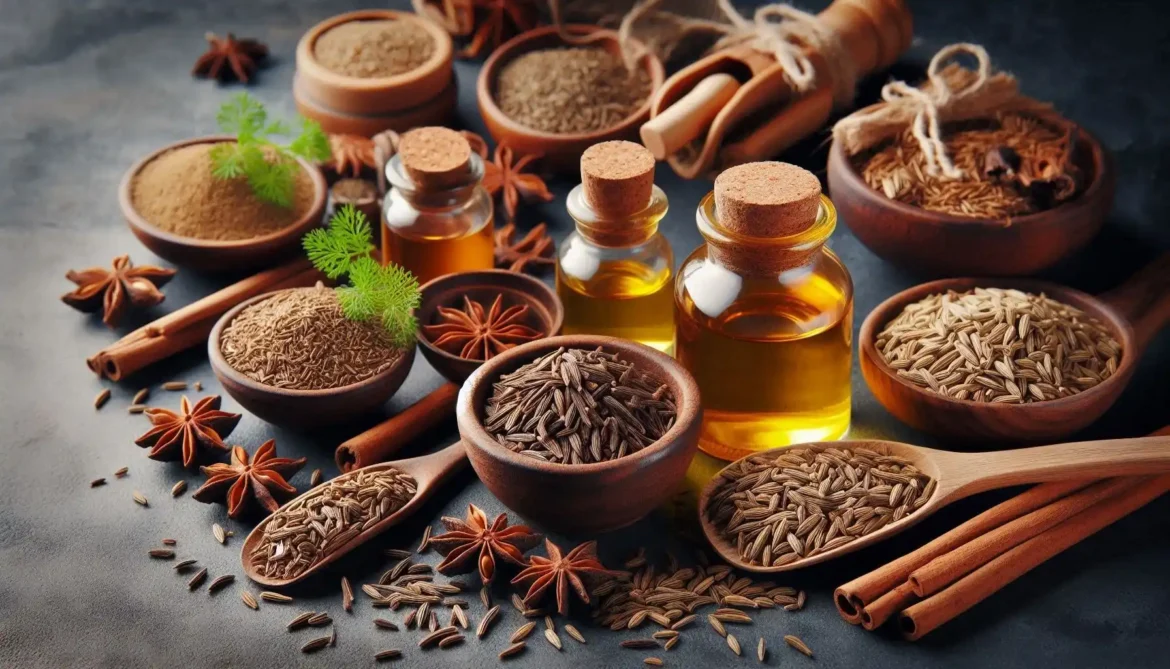
Cumin: Health Benefits, Uses, and Methods of Usage
As we delve into the world of spices, one tiny seed stands out for its unique flavor, versatility, and numerous health benefits: the cumin seed. Often overshadowed by more popular spices like cinnamon or turmeric, cumin seeds (Cuminum cyminum) are a staple in many global cuisines, offering a distinctive earthy, warm, and slightly bitter taste. Let’s explore the history, uses, and benefits of this unassuming powerhouse of flavor and nutrition.
A Brief History of Cumin Seeds
Cumin seeds have a rich history dating back thousands of years. Native to the Mediterranean region, they were cultivated in Egypt, ancient Persia, and the eastern Mediterranean as early as the second millennium BCE. Cumin seeds were highly valued in these ancient cultures for their medicinal properties, as well as their ability to preserve food.
The use of cumin seeds spread to the Indian subcontinent and China through trade routes, eventually reaching the New World via Spanish explorers. Today, cumin seeds are a fundamental ingredient in Mexican, Indian, Middle Eastern, and North African cuisines, among others.
Nutritional Profile of Cumin
Cumin is not only flavorful but also packed with essential nutrients. A tablespoon of ground cumin contains:
Calories: 22
Carbohydrates: 3.5 grams
Fiber: 1 gram
Protein: 1 gram
Fat: 1.5 grams
Iron: 1.4 mg (8% of the Daily Value)
Manganese: 0.3 mg (15% of the Daily Value)
Magnesium: 11 mg (3% of the Daily Value)
Calcium: 40 mg (4% of the Daily Value)
Health Benefits of Cumin
1. Aids Digestion
Cumin seeds are known for their digestive benefits. They contain a compound called thymol, which stimulates the production of saliva and digestive enzymes. This helps in breaking down food more efficiently, reducing the risk of indigestion, bloating, and gas.
Improves Bloating and Gas: Cumin seeds have carminative properties that help in expelling gas from the stomach and intestines.
Enhances Nutrient Absorption: By promoting the secretion of pancreatic enzymes, cumin aids in the absorption of nutrients from food.
2. Rich in Antioxidants
Cumin is a rich source of antioxidants, which protect the body against free radicals that can cause oxidative stress. This stress is linked to various chronic diseases, including cancer, heart disease, and neurodegenerative disorders.
Vitamins and Minerals: Cumin contains vitamins A, C, and E, along with minerals like iron and manganese, all of which have antioxidant properties.
Reduces Inflammation: Antioxidants in cumin can help reduce inflammation in the body, which is a common underlying cause of many health issues.
3. Boosts Immunity
The high iron content in cumin is crucial for the production of hemoglobin, which carries oxygen to the cells and boosts the immune system. Additionally, cumin contains essential oils that have antibacterial and antifungal properties, further enhancing immunity.
Iron-Rich: A single tablespoon of cumin provides about 8% of the daily recommended intake of iron.
Essential Oils: These oils can help fight off harmful pathogens and protect the body from infections.
4. Supports Weight Loss
Cumin can play a role in weight management by enhancing metabolism and reducing water retention. It also helps in controlling appetite by promoting feelings of fullness.
Metabolism Booster: Cumin seeds can enhance the metabolic rate, helping the body burn fat more efficiently.
Reduces Water Retention: The diuretic properties of cumin help in reducing water retention, which can contribute to weight loss.
5. Lowers Cholesterol
Research has shown that cumin can help in reducing bad cholesterol (LDL) and triglycerides while increasing good cholesterol (HDL). This makes it beneficial for heart health.
Reduces LDL Cholesterol: Studies have found that cumin can lower LDL cholesterol levels, reducing the risk of heart disease.
Increases HDL Cholesterol: Cumin seeds have been shown to increase HDL cholesterol, which helps in removing excess cholesterol from the bloodstream.
6. Improves Skin Health
The antioxidants and nutrients in cumin can help in maintaining healthy skin. It can protect the skin from damage caused by free radicals, reduce the signs of aging, and promote healing.
Anti-Aging Properties: Cumin’s antioxidants can help in reducing the appearance of fine lines and wrinkles.
Promotes Healing: The essential oils in cumin can help in healing minor skin conditions like acne and rashes.





